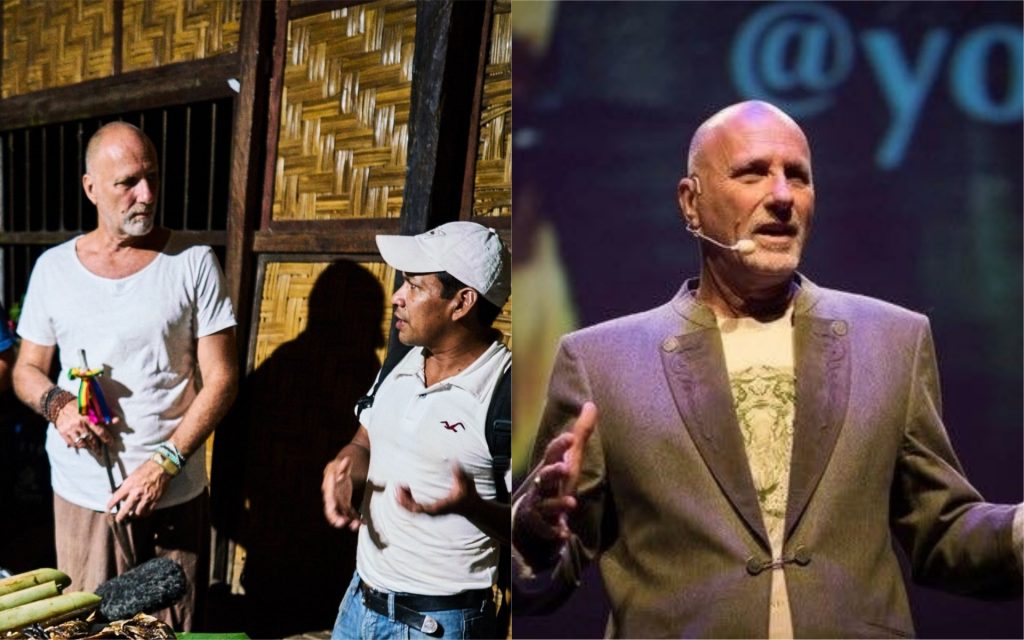When he was 22 years old, Yossi Ghinsberg headed to the Amazon seeking adventure. After a harrowing tale of being lost in the Bolivian jungle for three weeks — a story documented in the film “Jungle” starring Daniel Radcliffe — Ghinsberg was rescued by the Indigenous community of San José de Uchupiamonas (which it refers to as the Uchupiamona Nation). In the years since, Ghinsberg has become an ambassador for the community, working with the Indigenous people to develop Chalalan Ecolodge and helping to ensure the community’s continuity. He will present a keynote address at the Adventure Travel World Summit about his connection with the Uchupiamonas.
On 9 August, the United Nations recognizes International Day of the World's Indigenous Peoples. Ghinsberg’s story about the Uchupiamonas and Chalalan Ecolodge offers a peek into what this Indigenous community has done to improve its livelihood by embracing sustainable tourism.

The Uchupiamona (pronounced oo-choo-pee-a-moe-na) as a tribe is extinct, and the ethnic origins of today’s Uchupiamona Nation are Quechua-Tacana. Nonetheless, the Quechua-Tacana Indigenous community of San José de Uchupiamonas proudly preserves the tribe’s name and its traditions and culture. Its oral tradition has been passed down for 400 years as has a particular stick made of durable wood, which has passed from ruler to ruler over the course of several generations. “When I visit the community now, they honor me and make me the temporary ruler of the nation for a few days. During these days, I usually start revolutions and give all the kids vacation because I want to take advantage of my position,” Ghinsberg said, laughing.
In all sincerity, though, he has officially been named an Uchupiamona, serving as an ambassador for the community to the rest of the world — an honor Ghinsberg is proud of and that he takes very seriously.
Ghinsberg’s initial connection with the Uchupiamonas began when he was rescued by Abelardo “Tico” Tudela and a couple members of the community in 1981. In 1992, he returned to visit San José de Uchupiamonas, which held a huge celebration in his honor. “In my very bad Spanish at the time, I tried to give a speech of my own, saying ‘thank you for saving my life,’” he said. “To that, they answered, ‘It’s nice that you came to say thank you for saving your life, but just so you know, our lives are in danger. The life of the entire community is in danger. The life of the village is in danger. The village is about to die. Will you do something to help us to save our lives?’”
Youth were leaving the remote community for jobs in more populated destinations and returning to the exceptionally isolated village was physically difficult. The Uchupiamonas idea for solving the problem was Chalalan Ecolodge, located on the shores of the Chalalán Lagoon and surrounded by Madidi National Park, where the youth could work and travelers could experience the natural landscape while sustainably supporting the Indigenous culture and community.
Ghinsberg committed to helping realize this dream in any way possible, initially organizing a raffle and securing sponsorships worth $10,000 USD to help get Chalalan Ecolodge started. He settled in Bolivia for three years and, together with the Uchupiamonas, embarked on an early form of sustainable tourism before the concept was mainstream. For example, community members historically killed the spider monkey, which was in danger of becoming extinct, for food and as a form of financial security when sold. That same animal, however, had the potential to generate more and ongoing revenue if protected and available for travelers to view and appreciate when visiting Chalalan Ecolodge. “This monkey becomes a partner. Don’t kill your partner for two dollars. It’s worth, economically, so much more,” Ghinsberg said. “That’s how I began understanding that conservation doesn’t work. What works is sustainable development.”

To further fund Chalalan Ecolodge, Ghinsberg presented a three-page proposal for a $250,000 grant to the Inter-American Development Bank outlining how sustainable development could save the community and the surrounding forest. He walked away with the promise of $1.25 million for the project, an agreement that was made between the Inter-American Development Bank and the Uchupiamonas directly without a non-governmental organization to negotiate the terms, which was unprecedented.
After numerous expert reviews, surveys, and studies to formalize the project, the Uchupiamonas officially opened Chalalan Ecolodge in 1995. It has, without question, transformed the community from one on the brink of extinction to one that not only survives but thrives. “The transformation is unimaginable,” Ghinsberg said. “Today the Uchupiamonas are the most educated ethnic group in Bolivia. Their lives are transformed. They have people from Lima, La Paz, and many people from Rurrenabaque working there. Their story is known all over the world.” All aspects of Chalalan Ecolodge are managed by the Uchupiamonas, and it has received a number of awards and accolades since its opening. Approximately 800 people visit each year.
However, Ghinsberg said, this isn’t a Cinderella story. “The community is still isolated and poor. They’re doing much, much, much better, but it’s not over.” Now the property is 20 years old, and it requires renovations and updates, which the community continues to work on. “We have new challenges, but we are meeting them,” he said.
Today Ghinsberg serves as Chalalan Ecolodge’s resort director, and the Amazon continues to lure him, just as it did when he was 22 years old. “What inspires me is the remoteness, the Indigenous people, people who live close to the earth, the beauty of nature,” he said. “I like great adventures, but I’m not an adrenaline seeker. I’m searching more for beauty, for innocence, for intimate relationships with nature and the elements, for the spiritual aspect of the peoples who live that way. That is what inspires me.”
Though the Summit is sold out, the ATTA is debuting a digital access pass. Unlocking educational content, this feature allows those who want to attend the event but cannot be a part of the Summit in person to learn, improve, evolve, and prepare to successfully advance into the future. Attending Summit delegates will receive a special discount to the video content. Sign up for Summit updates to be alerted as more details on the digital access pass are released.
